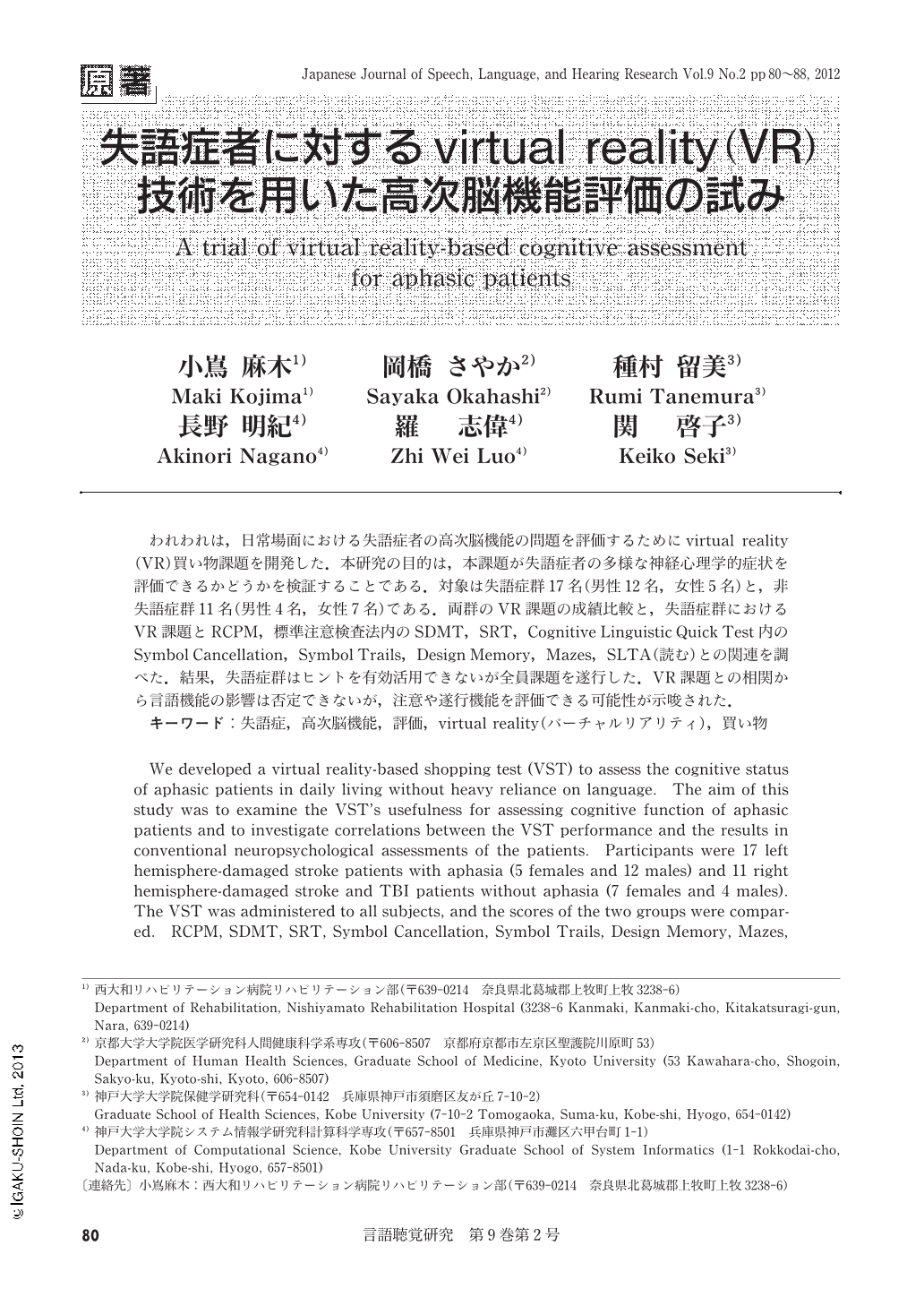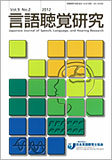Japanese
English
- 有料閲覧
- Abstract 文献概要
- 1ページ目 Look Inside
- 参考文献 Reference
われわれは,日常場面における失語症者の高次脳機能の問題を評価するためにvirtual reality(VR)買い物課題を開発した.本研究の目的は,本課題が失語症者の多様な神経心理学的症状を評価できるかどうかを検証することである.対象は失語症群17名(男性12名,女性5名)と,非失語症群11名(男性4名,女性7名)である.両群のVR課題の成績比較と,失語症群におけるVR課題とRCPM,標準注意検査法内のSDMT,SRT,Cognitive Linguistic Quick Test内のSymbol Cancellation,Symbol Trails,Design Memory,Mazes,SLTA(読む)との関連を調べた.結果,失語症群はヒントを有効活用できないが全員課題を遂行した.VR課題との相関から言語機能の影響は否定できないが,注意や遂行機能を評価できる可能性が示唆された.
We developed a virtual reality-based shopping test(VST) to assess the cognitive status of aphasic patients in daily living without heavy reliance on language. The aim of this study was to examine the VST's usefulness for assessing cognitive function of aphasic patients and to investigate correlations between the VST performance and the results in conventional neuropsychological assessments of the patients. Participants were 17 left hemisphere-damaged stroke patients with aphasia(5 females and 12 males) and 11 right hemisphere-damaged stroke and TBI patients without aphasia(7 females and 4 males). The VST was administered to all subjects, and the scores of the two groups were compared. RCPM, SDMT, SRT, Symbol Cancellation, Symbol Trails, Design Memory, Mazes, and the reading comprehension subtests of SLTA were administered only to the aphasic patients, and correlations between the VST and the scores from the neuropsychological assessments were analyzed. All aphasic patients completed the VST, although they were unable to use hints effectively. There were statistically significant correlations between the VST and RCPM, SDMT, SRT, Symbol Cancellation, Symbol Trails, Mazes, the reading comprehension subtests of SLTA. It was suggested that the VST might be useful in assessing attention and executive function of aphasic patients, although some influence of linguistic function could not be denied.

Copyright © 2012, Japanese Association of Speech-Language-Hearing Therapists. All rights reserved.


